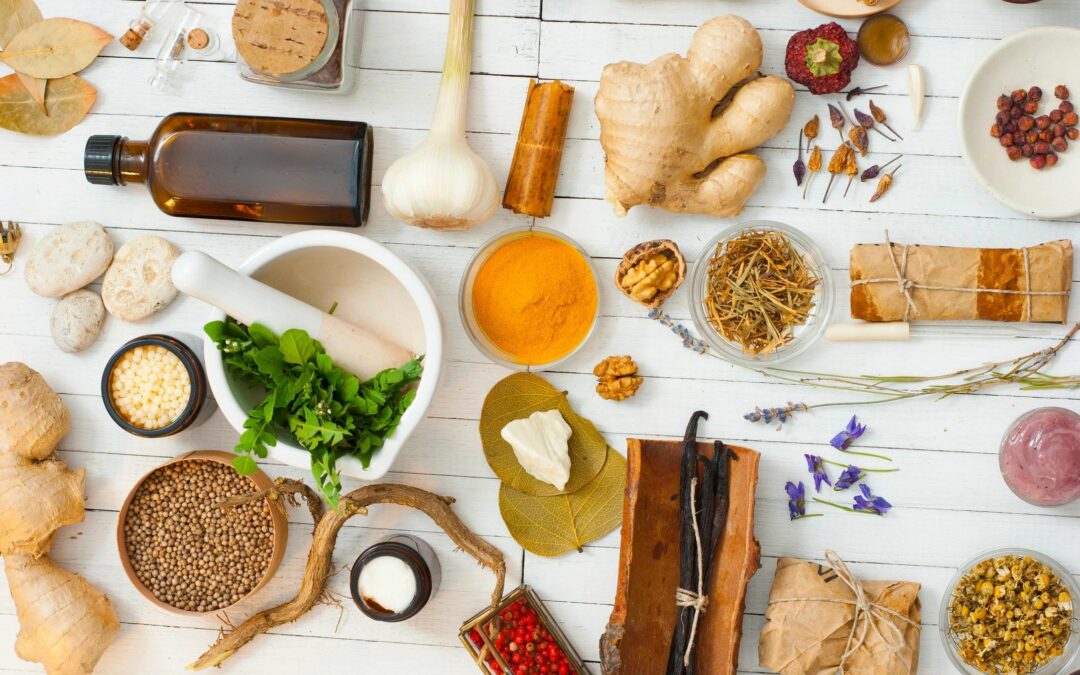Use the freshest ingredients and eat seasonally
This means purchasing ingredients that are organic, seasonal, and ideally local, which will ensure you’re cooking with the freshest, most nutrient-dense food you can find. If you don’t have a garden, your nearby farmers market is your next best bet for local food choices.
Avoid combining certain ingredients
Some ingredients, although they may taste good together, don’t digest well in tandem because they have dissimilar digestion paces. For example, combining fresh fruit with dairy or grains can cause tummy troubles because they digest at different speeds. If you enjoy fruit in your oatmeal, Ayurvedic principles would call for cooking the fruit with the oatmeal so your body can digest them simultaneously.
Include all six tastes
In Ayurveda, there are six tastes, or rasas: astringent, bitter, pungent, salty, sour, and sweet. Vedic cooking recommends incorporating each taste in every meal according to your personal constitution in order to achieve balanced nutrition and good health. This will also keep you satiated for longer!
Cooked vs. Raw
In Ayurveda, cooked foods are considered more nourishing than raw foods. However, overcooking, burning, or deep-frying food kills its life-giving nutrients. It can also destroy the taste. Raw foods can be harder to digest and can diminish agni (digestive fire). When agni is weak, the body creates agni that can prevent you from receiving nutrients from food and can cause disease.
Cooking according to your dosha
Your dosha (Pitta, Vata, or Kapha) is your physical and emotional constitution. Keeping it balanced is key to maintaining or enhancing your health!
Staple Ayurvedic Ingredients
If you’re stocking up your pantry, countertop, and fridge to get cooking the Ayurvedic way, these are some of the essentials:
- Fresh vegetables and fruits: The key here is a variety of colors and seasonal. Each season has better vegetables and fruits to support you! Some vegetable staples are: kale, radicchio, chards, carrots, beets, garlic, and ginger.
- Herbs and spices: Spices are medicine in Ayurveda with a host of health benefits and uses from anti-inflammatories, digestion, immune support, and more! Turmeric, ginger, whole seed cumin, coriander, mustard, ajwain, and asafoetida are often used.
- Healthy cooking oils and fats : Ghee, clarified butter, is revered in Ayurvedic nutrition as a superfood because it promotes healthy digestion, decreases inflammation, can help reduce the risk of cancers and other diseases, and much more. It’s great for high-heat cooking because the lack of milk solids ensures it won’t burn. Coconut oil, olive oil, and sesame oil are also recommended.
- Basmati rice and whole grains: In Ayurveda, basmati rice is the king of all kinds of rice because it’s easy to digest and it’s said to balance all three doshas. Mung bean, red lentils, barley and quinoa are also used.
- Unsalted nuts and seeds: Not only are they a healthier alternative to salty, packaged foods, they’re also rich in healthy fats and protein. Fats give us long –term energy and support against sugar cravings.
